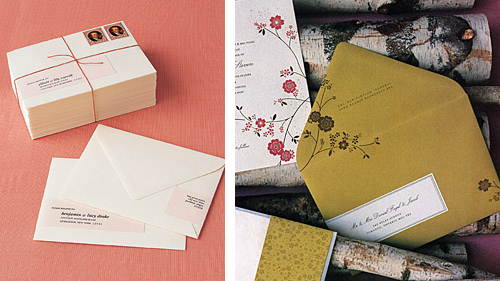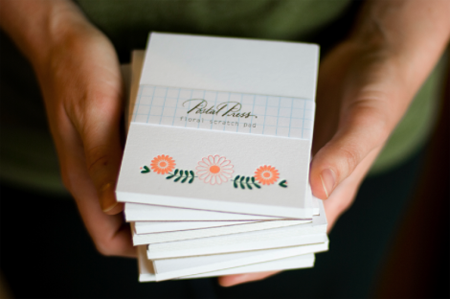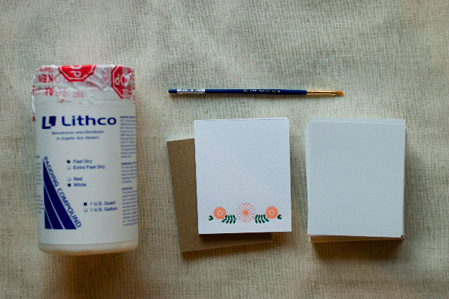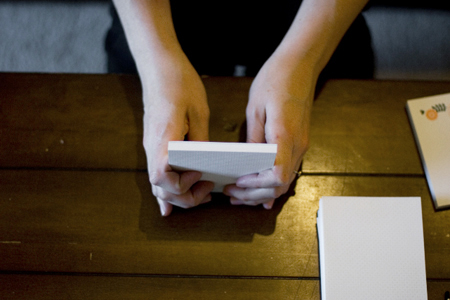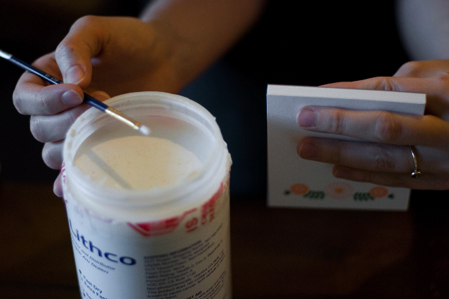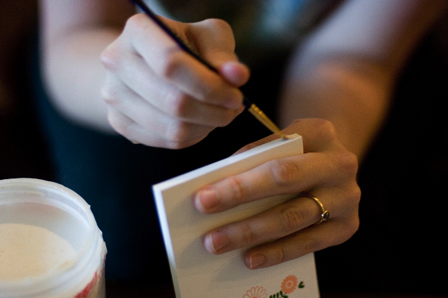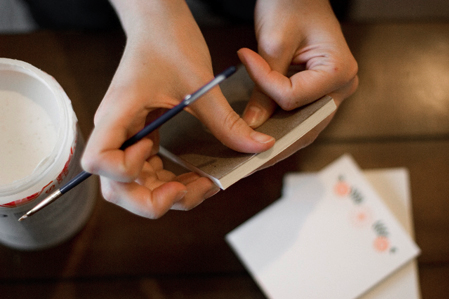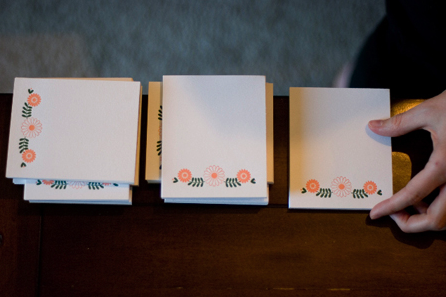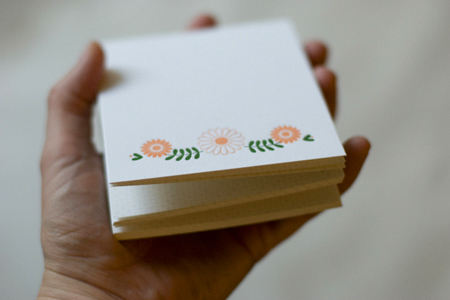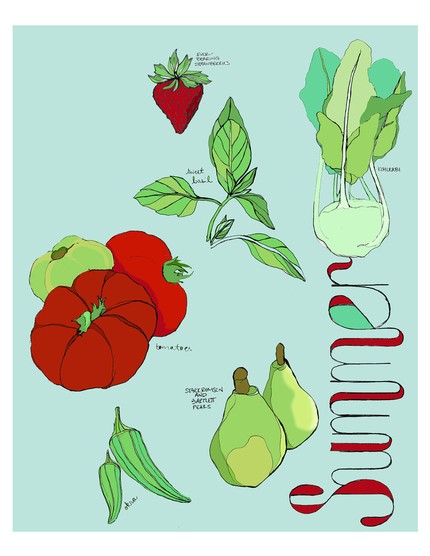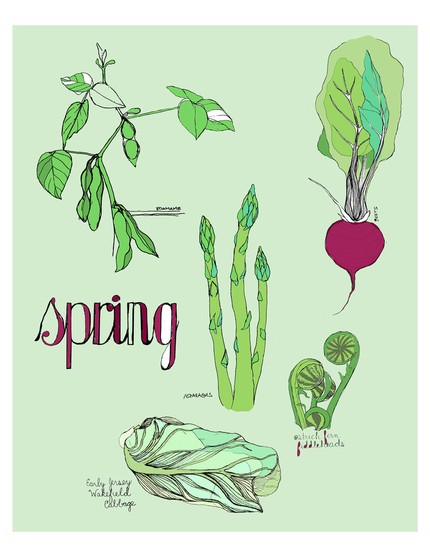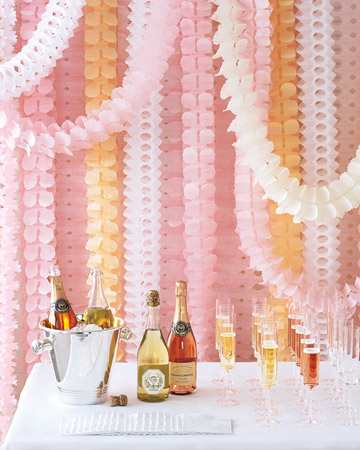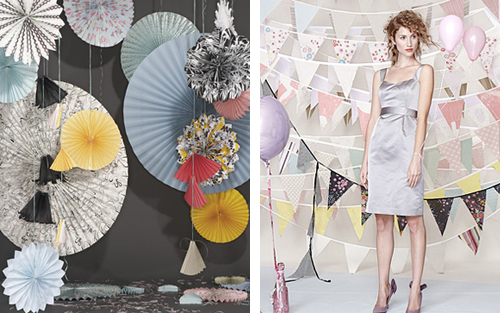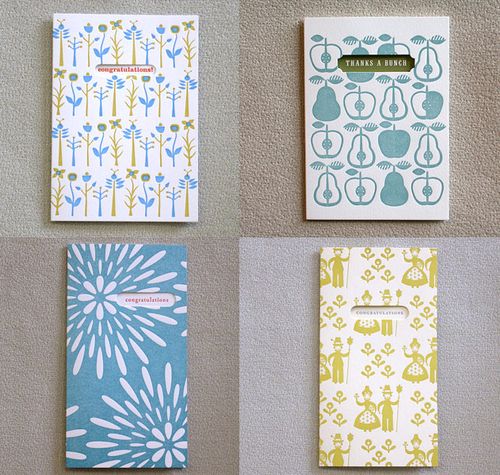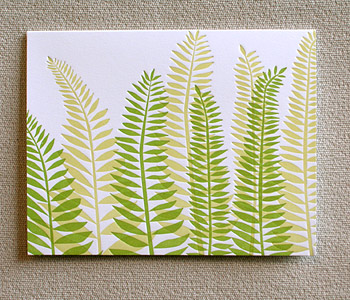Images from Martha Stewart Weddings (right styled by Rebecca Thuss)
Hello, everyone! It's Maddy from the Inspired Bride blog, here to once again fill in for Nole.
Everybody is thinking of ways to save money nowadays, and the first things to go are the ones that aren't in the "absolutely necessary" column. For a lot of brides, that means sacrificing hand calligraphy – while it's gorgeous, it also can rack up quickly if you have lots of guests. Here are some suggestions on how to cut the calligraphy without losing the great first impression it makes.
Make an investment in a commercial calligraphy face and print your envelopes. Please don't go down the free font route! I've pleaded this case on my blog before because, as a graphic designer, it can be a little painful to see. There's a reason they're free – typographically, they're generally not up to par with pay fonts, and when that craftsmanship is not there from the get go, you won't be leaving the impression with your guests that you want. There are plenty of typefaces available for affordable prices, and I've covered some on the Inspired Bride. A great resource for affordable fonts is MyFonts – I would recommend you start there. Remember that the more you use the fonts, the better deal you're getting, so consider using them on favors, place cards, and programs, as well – anywhere you would have originally considered using calligraphy.
Do the wrapping label. Normally, it's considered a faux pas to put labels on an invitation, and in most cases I'd agree – however, the trend of making a wrapping label (as shown above), I think, is incredibly modern and gives an added element of "specialness". Plus, it just looks great – I loved the look so much, I nixed the hand calligraphy on the envelopes of my escort cards and used wrap labels instead in my own wedding two months ago.
DIY, literally. I came across a brilliant idea a few months back, but I definitely would recommend this only for those of you with steady hands and a heck of a lot of time and patience. This blogger had the brilliant idea to print her envelopes with a slightly darker ink on dark envelopes to use as a "trace line". She then went back over the slightly visible letters with an opaque white ink pen to give the quirkiness of hand calligraphy to the letters without being a trained professional.

